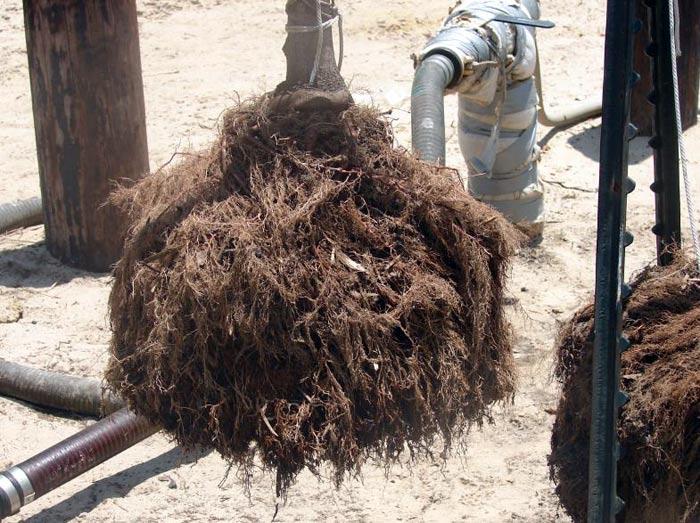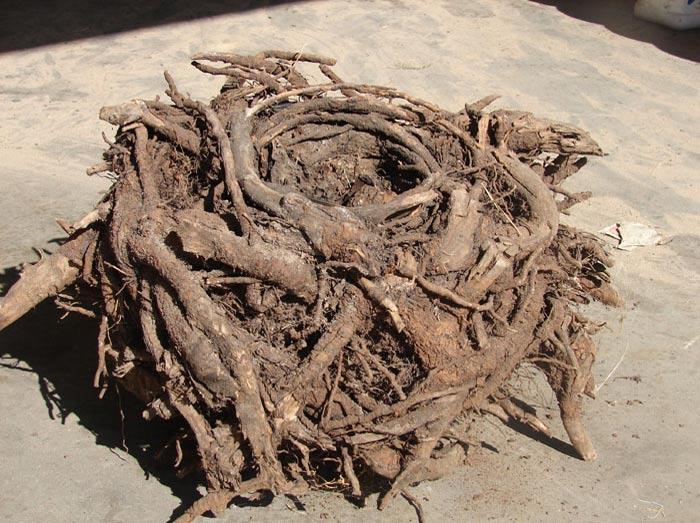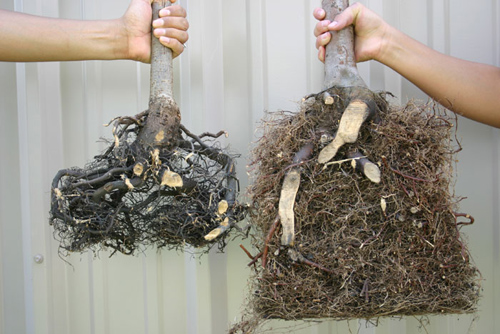
02 Jul Our Certified Rootmaker® Tree Roots vs. Competitors’ Tree Roots
THE DIFFERENCE IS ASTOUNDING!
You can see the unwanted circling roots in the typical competitor rootball from trees grown in conventional smooth wall containers.
Plants with inferior root systems, like a circling rootball, are typically slow to establish after transplanting due to the minimal amount of small roots that are accessible. Due to the circling pattern in these roots, they are susceptible to pathogens, drought or other environmental stresses.
See in the photos below the difference between a typical rootball grown by competitors versus a Rootmaker® Rootball grown by Athens Tree Farm.
You can see the unwanted circling roots in the typical competitor rootball from trees grown in conventional smooth wall containers.
Plants with inferior root systems, like a circling rootball, are typically slow to establish after transplanting due to the minimal amount of small roots that are accessible. Due to the circling pattern in these roots, they are susceptible to pathogens, drought or other environmental stresses.

Competitors' CIRCLING rootball |
Typical example of most competitors’ CIRCLING rootball |

Athens Tree Farm Rootball |
Classic example of an Athens Tree Farm Rootball |
Our CERTIFIED ROOTMAKER® Tree Roots vs. Competitors’ Tree Roots at 2 Years:
In this photo, you can see the competitor’s typical 2 year old tree with minimal roots on the left, VERSUS Athens Tree Farm’s 2 year old tree on the right with roots that exceed competitor’s roots by the thousands.

Rootball Comparison at 2 years |
Competitor (left) vs. Athens Tree Farms’ Rootmaker Rootballs (right) |
